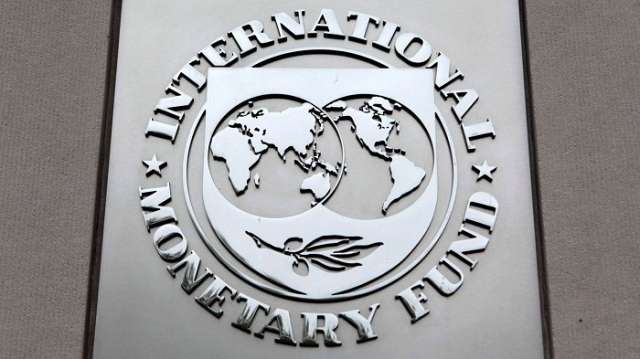The IMF said the global economy will expand 3.7% this year, down from its April estimate of 3.9%.
Risks about which the Fund had warned this year—“such as rising trade barriers and a reversal of capital flows to emerging market economies with weaker fundamentals, and higher political risk—have become more pronounced or have partially materialized,” the IMF said in the release of its World Economic Outlook—its flagship global economic forecasts.
The revisions had been foreshadowed by IMF Managing Director Christine Lagarde, who saw the outlook dimming, saying in a speech last week that “the global economic weather is beginning to change.”
The forecasts set the stage for discussions this week at the annual meetings of the IMF and World Bank, at which central bankers and finance ministers from around the world will meet in Indonesia to discuss the global economic outlook, among other topics.
While many ministers have spent the past year and a half fretting about the risks from rising trade protectionism, this round of forecasts shows that tariffs are beginning to take their toll. The measures have been implemented by the U.S. and other countries have responded with tariffs of their own.
Global trade has suffered. Last year, global trade volume grew 5.2%, the best year since the 2010 and 2011 rebound from the global financial crisis. This year, trade appears on course for 4.2% growth, a 0.9-percentage-point cut from the April forecasts.
“We’ve gotten some bad news and the probability we’d attach to further bad news has gone up,” Maurice Obstfeld, the IMF’s chief economist, said in a briefing with reporters.
The IMF expects U.S. growth will be 2.9% this year, unchanged from its earlier forecasts.
China’s economy is forecast to grow 6.6% this year, also unchanged from earlier forecasts, and 6.2% next year.
Forecasts fell for growth in the euro area and for many emerging markets, but aren’t weaker everywhere. Saudi Arabia and Russia are expected to experience stronger growth.
The eurozone economy is expected to grow 2% this year, down from a 2.2% estimate in July.
The IMF’s forecasts also were weighed down by emerging-market economies, which have faced instability over the past six months. The flip side of the dollar rising nearly 10% this year has been falling currencies in emerging markets, raising the price of their imports, making it challenging for them to manage dollar-denominated debts, and forcing their central banks to raise rates on sometimes weak economies.
Argentina’s economy is expected to contract sharply this year and next.
The economy of Turkey is seen expanding just 0.4% next year, down from 7.4% last year.
While forecasts far into the future are notoriously unreliable, the forecasts for 2018 incorporate nearly three quarters of economic data.
Despite the emerging-market turmoil, the global economy entered this period on a wave of strength. Last year, nearly all economies enjoyed a synchronized upswing in growth, leaving the economy on stronger footing to weather this year’s turbulence. The IMF expects a slowdown but not a disaster. Notably, the IMF said it thinks emerging-market turmoil is unlikely to spread.
“We don’t expect the current problems to spill over to countries with stronger fundamentals,” Mr. Obstfeld said.
The Wall Street Journal
More about: IMF
















































